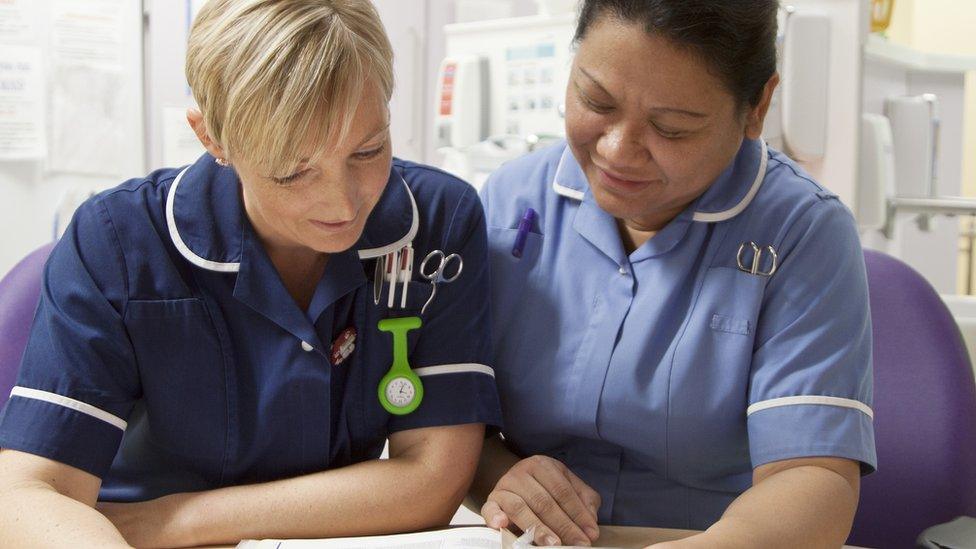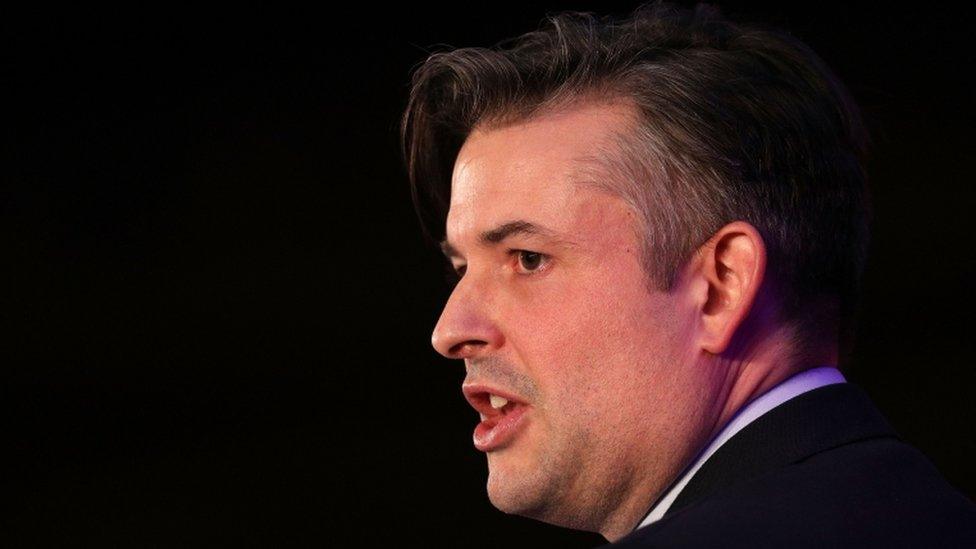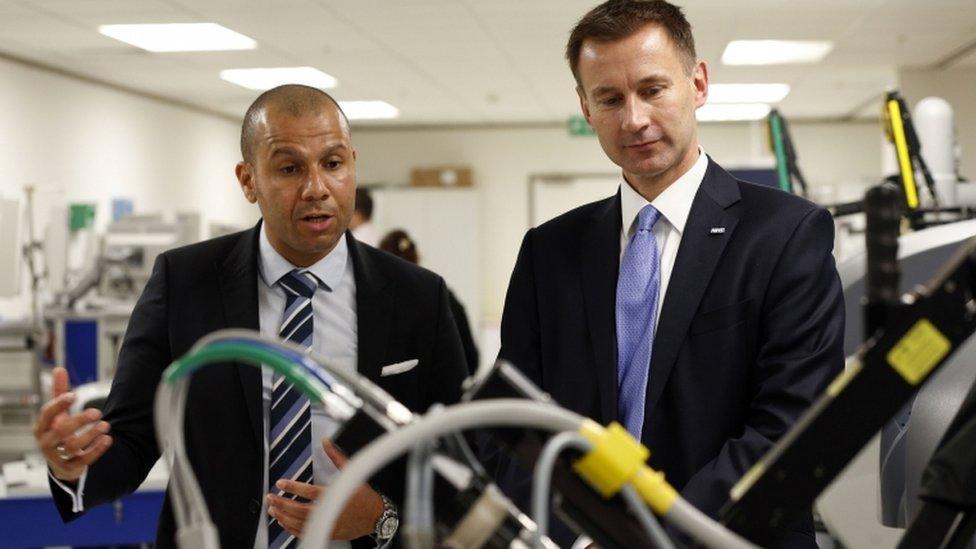Health: A key issue in the general election
- Published

Health is always discussed on the doorsteps in general election campaigns.
Labour has long seen the NHS as its defining electoral issue.
The Conservatives have tried hard to demonstrate their commitment with pledges in recent years of above-inflation investment.
But how much difference will it make this time in a campaign that is sure to be dominated by Brexit?
General Election: What you need to know
Election Live: Rolling text and video updates
Polling suggests the state of the NHS is high on people's list of concerns.
An Ipsos/Mori survey in January in association with the Economist showed that 49% of respondents considered it to be one of the biggest issues facing Britain, up nine percentage points since December and the highest level recorded since April 2003.
This was slightly ahead of the proportion (41%) seeing the EU and Brexit as a major issue. Immigration was next on the list, though lower than in December.
The same survey just before the general election in May 2015 had the economy, the NHS and immigration bunched quite closely together as issues of the highest public concern.
The latest snapshot has the NHS pulling ahead of both. But the key question is whether what people tell the pollsters are key issues translates into voting intentions.
The King's Fund think tank recently analysed the British Social Attitudes survey taken across England, Scotland and Wales and found that public satisfaction with the NHS was high at 63%, little changed from 2015.
It is worth pointing out, though, that this polling was carried out in the summer and early autumn of 2016 before the latest bout of winter pressures.
The general election health debate will be about England as governments in Scotland, Wales and Northern Ireland run their health services and they have no elections this time.
Labour made health a central plank of its 2015 election campaign. Andy Burnham, then the party's health spokesman, spoke out forcefully about the pressures on hospitals over the preceding winter.
He also accused the Conservatives of encouraging privatisation of the NHS, which they in turn denied.
But this failed to cut through, as the Tories achieved a majority.
This time Labour is stressing that health will again be central to its campaigning effort.

Jon Ashworth believes public concern about the NHS has intensified
The shadow health secretary, Jon Ashworth, believes that public concern is greater than in 2015 and that a tipping point has been reached over A&E delays and longer waits for routine operations.
On some benchmarks NHS England has seen its worst ever winter as hospitals have struggled to keep up with rising patient demand.
What will become clear in the weeks ahead is whether patient frustration is being raised consistently with canvassers on the doorsteps.
Labour will allege the Conservative government has failed to get to grips with an NHS crisis.
Jeremy Corbyn and the Labour left will push their claim that the government has allowed private providers to take an increasing share of the NHS cake and there is a covert agenda to undermine the service.
The proportion of the NHS budget in England allocated to private organisations has increased. But whether this cuts any ice beyond the core Labour vote is far from certain.
NHS spending will no doubt feature strongly in the campaign debates.
Labour has yet to say how much more money it will pledge to health.
The Liberal Democrats have hinted strongly they will call for higher NHS budgets with a ring-fenced health and social care tax.
A review of health policy for the Lib Dems raised the idea of an independent body to predict spending requirements.
Health spokesman Norman Lamb has pushed the idea of a cross-party approach to chart the future of the NHS.
Both Labour and the Liberal Democrats have indicated they will campaign on the potential problems for the health and social care workforce when the UK leaves the EU.
Promises to guarantee citizenship rights for existing staff from the EU working in this country seem likely.

Jeremy Hunt will defend his record as a long-serving health secretary
All that leaves the Conservatives and Jeremy Hunt, the longest-serving health secretary in modern times, defending their record on health.
Party sources indicate that an "aggressive case" will be made and that "scare stories" about the state of the NHS will be rebutted.
They point to the recent update on strategy by the head of NHS England, Simon Stevens, in which he pointed to cancer survival being at a record high, improved dementia diagnosis and safer patient care.
What remains to be seen is how much emphasis will be given to the seven-day NHS pledge made in 2015.
The Conservatives will undoubtedly be challenged on whether enough money has been allocated to the NHS up to 2020.
They will highlight the £2bn pledged for adult social care in England over the next three years.
Politicians in England will soon discover as they knock on doors whether the NHS could this time be an issue that will swing votes as well as fuelling campaign rhetoric.